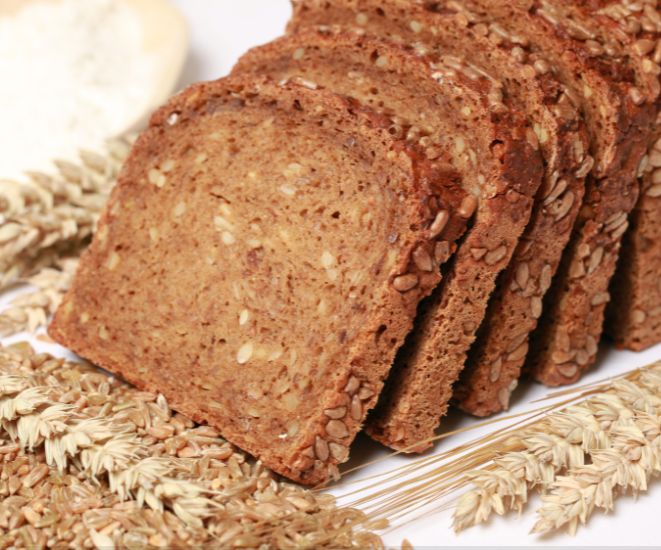Foods That Help Heal Colon Inflmmation
Processed foods, in particular, can cause gut inflammation and other issues. In fact, gut issues also are on the rise. So, how can you take better care of your gut health?
1. Eat Fiber-Rich Foods
A big problem with a lot of processed foods, besides their abundant amount of additives and chemicals, is that they are low in fiber. However, dietary fiber is necessary for a healthy gut microbiome. The bacteria in the gut ferment this fiber and produce short-chain fatty acids because of it. These entities have various signaling properties within our bodies that support optimal health and well-being.
Without ample fiber, the microbiome (the bacteria in your gut) may become imbalanced. This can lead to the growth of “bad” bacteria” and a decline in “good” bacteria. Ultimately, this all cascades down the line, impacting the colon, too.
However, a fix for this is eating more fiber-rich foods. Experts even indicate that a high-fiber diet can potentially reduce the risk of colon cancer.
So, with that in mind, here are some fiber-rich foods you may want to add to your daily diet:
- Whole wheat bread.
- Brown rice.
- Beans.
- Legumes.
2. Incorporate Plant-Based Foods
This doesn’t mean going down the grocery aisle and grabbing plant-based processed foods. Rather, this refers to incorporating plenty of fruits and vegetables into your diet. By eating more whole foods, you can ensure you’re getting enough nutrients to support your colon and overall health. After all, your body can only do so much with the resources and tools you give it.
And yes, this may mean making more meals at home. Planning can help a lot here. For instance, a night or two a week, you can make batches of meals at home for the upcoming lunches and dinners. This can save you time down the road and help break any cycles of eating out or grabbing for the most convenient option.
3. Try Probiotic-Rich Foods
Probiotics are actually live bacteria. But don’t let that throw you off; these bacteria are the good guys and have various beneficial effects on your health and body’s systems. Research shows they can be anti-inflammatory and also support immune function. In other words, they can keep both your gut and overall health happy!
Here are some probiotic-rich foods (some of these you might already eat regularly!):
- Yogurt.
- Kefir.
- Cottage cheese.
- Kombucha.
- Miso soup.
- Sauerkraut.
- Pickles.
Add more of these to your diet to help your gut thrive!
4. Opt for Lean Meats
Fatty and processed meats may lead to a higher risk of various diseases and inflammation that causes them. So, throw out those deli meats. Instead, go for lean meats, such as chicken, turkey, beef, veal and more. These still offer plenty of protein but won’t contain other compounds that may cause harm to your health and gut.
5. Snack on Berries
While fruit was mentioned above, berries deserve a spot all on their own. Berries, such as blueberries, strawberries and more, contain plenty of antioxidants. Antioxidants can help deter inflammation and cellular damage by preventing the harm caused by free radicals.
So, if you’re wondering what to snack on, berries might be a great option! Throw some on yogurt, graze on a handful, or add them to your daily smoothie.
Other Things You Should Know
While incorporating the right foods can get you on track toward healing your gut and reducing inflammation in your colon, there are a few other things to keep in mind, including:
- Reducing stress: Stress can drive inflammation due to hormonal imbalances and more. Finding healthy coping mechanisms for stress is key to lowering inflammation and achieving optimal health.
- Decreasing sugar intake: This is particularly true for processed foods. Sugar from fruit shouldn’t necessarily be feared. Rather, focus on decreasing processed and pre-packaged foods in your diet.
- Planning ahead: Planning your meals and snacks ahead of time can ensure you stay on track with your anti-inflammatory diet plan. Consider making meals in batches or having easy snacks ready to go.
- Regular colonoscopy screenings: For men over the age of 45, you should get a regular colonoscopy screening every five to 10 years. Your doctor will determine what’s best for you.
When making big changes to your diet, it can also help to talk with a professional, such as a dietitian, nutritionist or doctor. Consider your needs and reach out to an expert for further guidance on your specific situation and goals.
Read on to learn about the best protein drinks for diabetics.
Article Resources
- Colorectal Cancer | World Health Organization
- Dietary Fiber Intake and Gut Microbiota in Human Health | National Library of Medicine
- Foods That Fight Colorectal Cancer: A Guide to Nutrition for Prevention and Treatment | UC Health
- Anti-Inflammatory and Immunomodulatory Effects of Probiotics in Gut Inflammation: A Door to the Body | National Library of Medicine
- Probiotics | Cleveland Clinic

